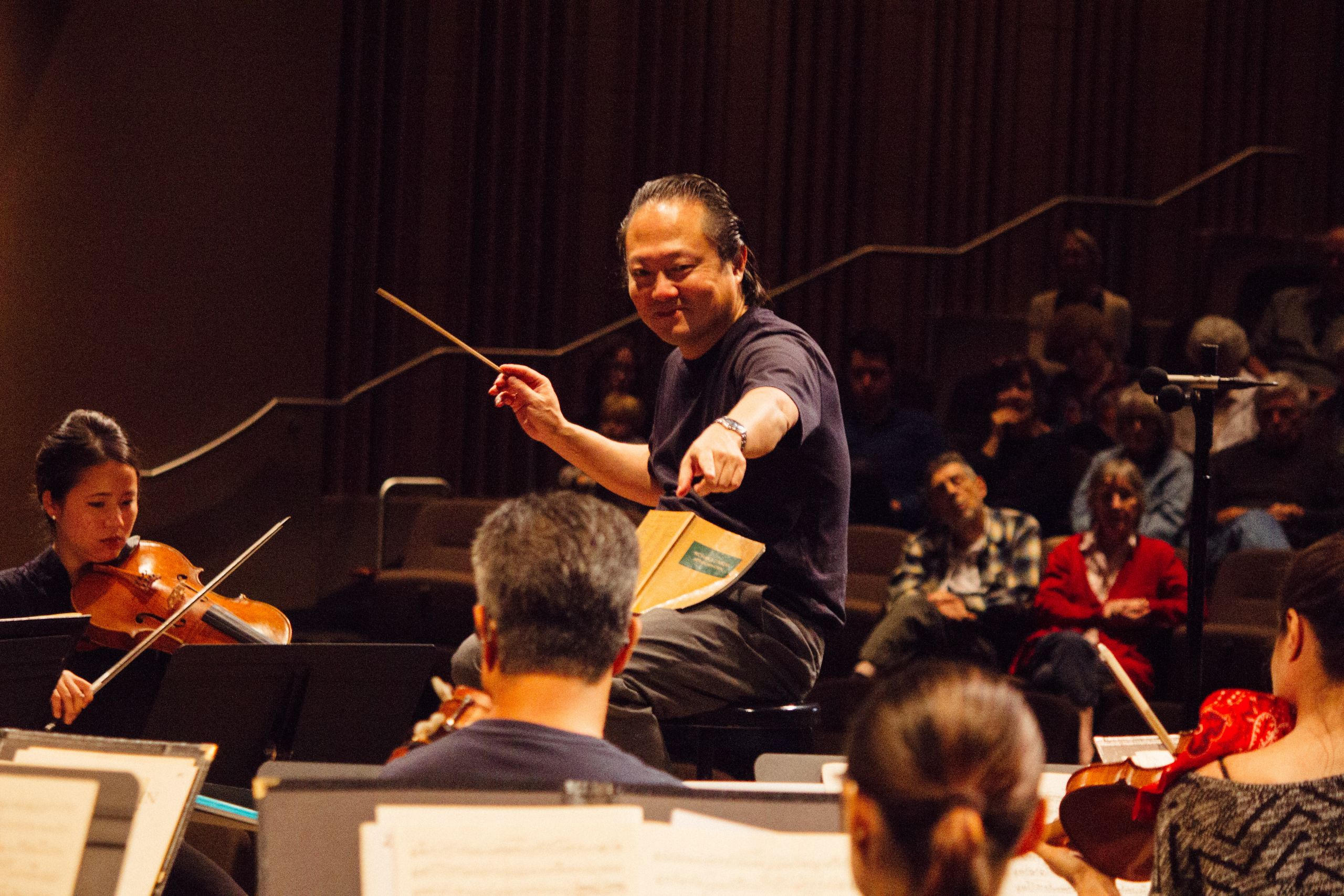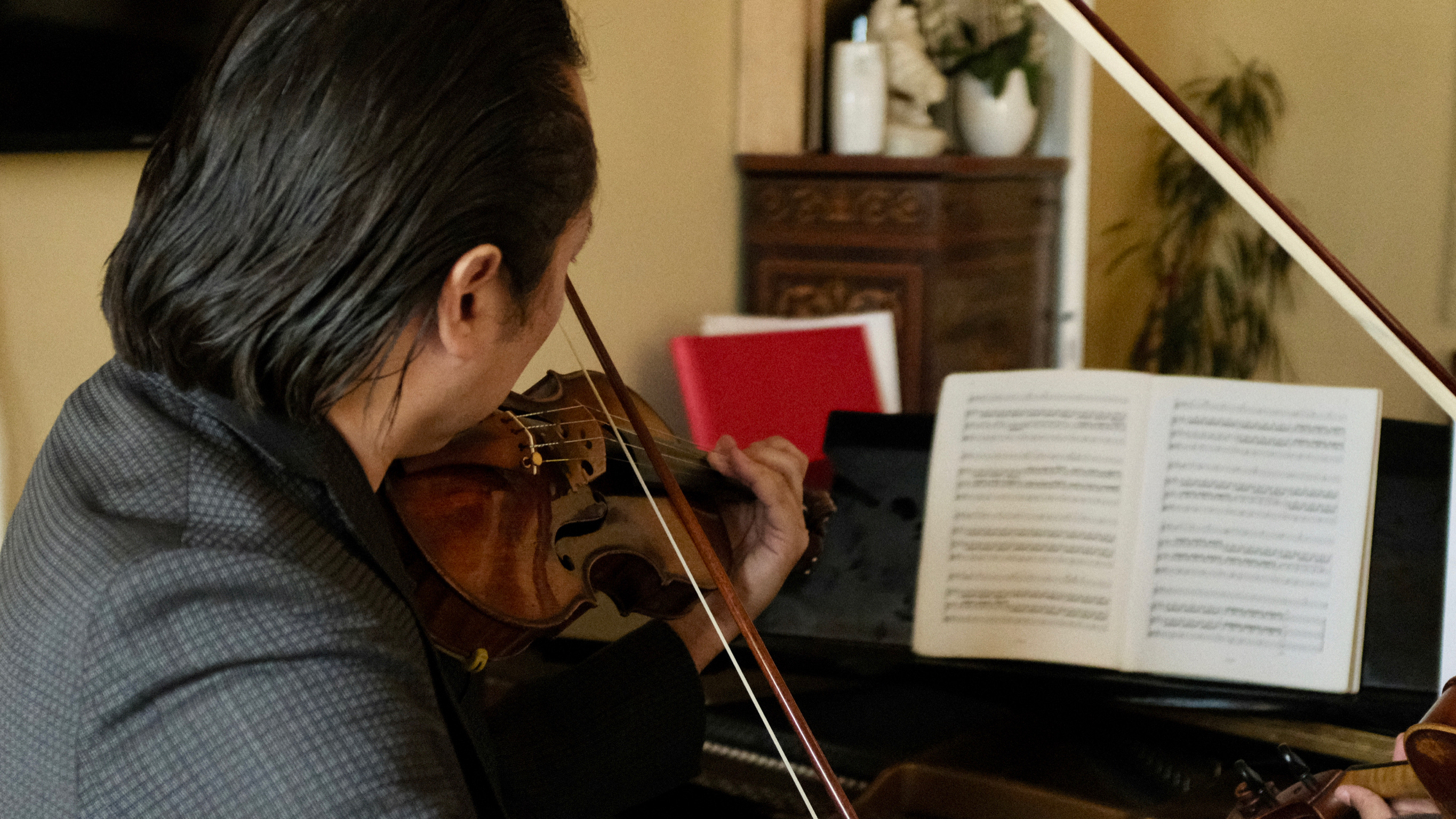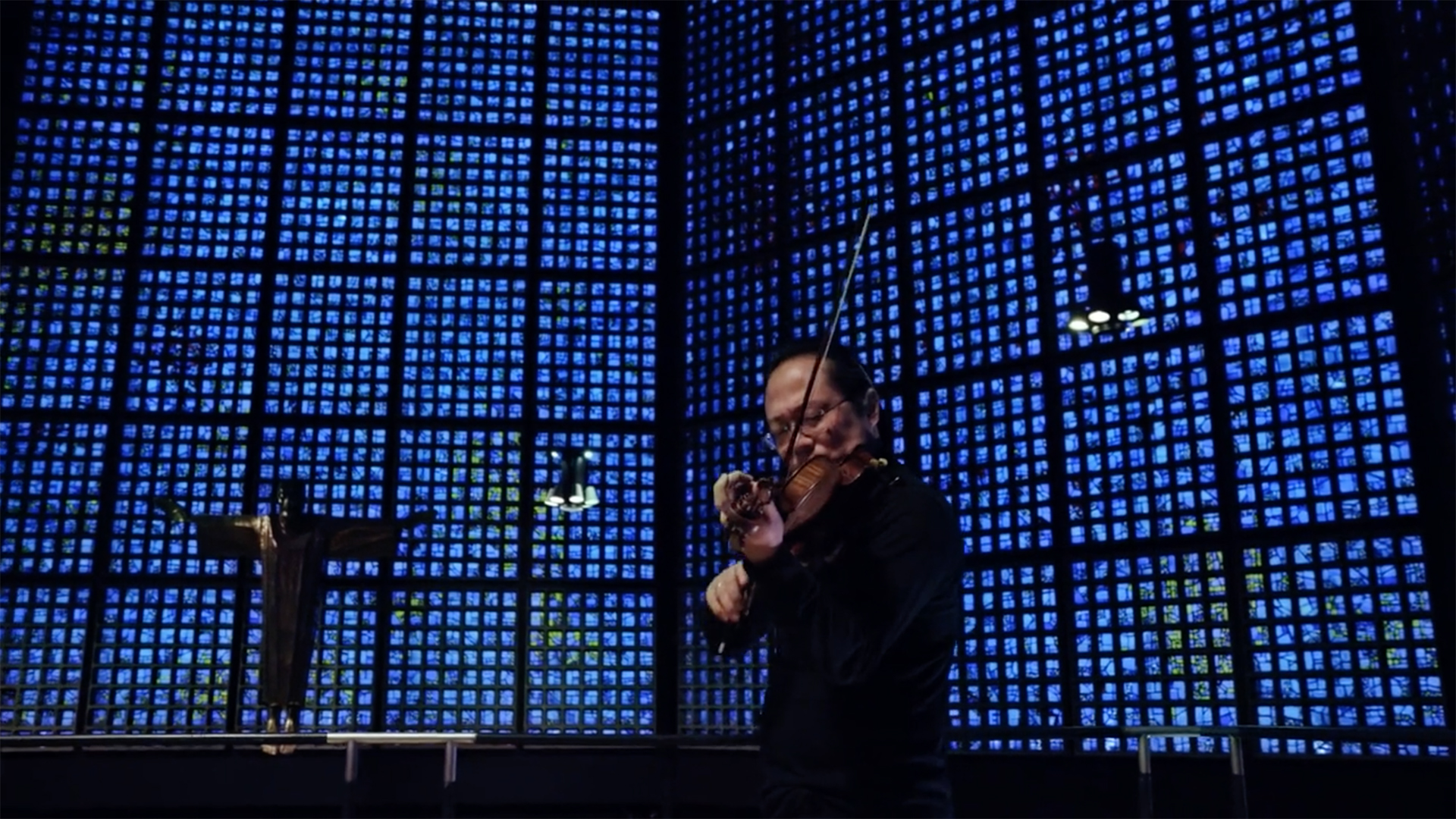By Scott Yoo
The host of Now Hear This and Mexico City Philharmonic music director shares the iconic pieces by the great composer that are most special to him. A playlist is available where you can listen to all of his Beethoven selections.
If you could meet any composer, who would it be? Let us know in the comments, and don’t miss Now Hear This: Beethoven’s Ghost premiering Friday, October 29 at 9/8c on PBS, pbs.org/nowhearthis, and the PBS Video app.

Photo by Katy Barnard
Beethoven Symphony No. 6, op. 68 Pastoral
Columbia Symphony
Bruno Walter
Beethoven’s Pastoral symphony is what I grew up listening to as a child! We played the Bruno Walter LP so many times that the cover ripped, and I recovered the album in paper and drew a cow on the front. What is so amazing about the Pastoral Beethoven makes the orchestra sound like it never has before, or since. Listening to this symphony makes it clear that Beethoven understood the beauty of nature more than anyone, and experiencing to this masterpiece allows us to become closer to it.
Beethoven Quartet in F major, op. 18/1
Beethoven Quartet in F minor, op. 95 Serioso
Beethoven Quartet in C# minor, op. 131
Guarneri String Quartet
If you want to really know Beethoven’s music, I would start off with the string quartets. He wrote 16 of them, in three periods: early, middle and late. They are kind of a metaphor for his life!
The first quartet I list, the F major, is his first quartet— you can still hear echoes of his predecessors Haydn and Mozart in it.
Scientists say that a mere teaspoon of the sun weighs more than a pound. The Serioso is just like the sun’s core: dense, and fiery, without wasting a single note!
Beethoven’s op. 131 is for me one of the very greatest pieces of music ever written. It almost transcends music— it is like an entire miniature civilization that four people bring to life. Beethoven covers all of the human emotions in a mere 38 minutes.
Enjoy all three quartets, and the 13 others, and you will get to know who Beethoven truly was!

Host Scott Yoo in the first episode of the miniseries, “Vivaldi: Something Completely Different.” Photo Credit: E.J. Enríquez
Beethoven Piano Concerto No. 3 in c minor, op. 37
Sviatoslav Richter, piano
Vienna Symphony
Kurt Sanderling
Its hard to choose your favorite Beethoven Piano Concerto like its hard to choose your favorite Bond film. When I was a kid, my dad listened to the first movement of the 3rd all the time, and I’ve always associated it with the serious looking marble bust of Beethoven on the record jacket. It wasn’t until I was a teenager that I listened to the second movement— the only slow movement that would hold my attention as a 15-year-old. It remains one of Beethoven’s greatest slow movements— one can develop a case of synesthesia listening to its lush green harmonies. The third movement reminds me of a Rubik’s cube— simple in appearance but intricate and fascinating when you dig deeper. Composers like Brahms and Rachmaninoff copied this movement, but none are as good as the original!
Beethoven Piano Trio in D major, op. 70/1 Ghost
Beaux Arts Trio
There are so many great piano trios of Beethoven— in fact his first official work: opus one, number one, is a piano trio— that it is hard to choose! The Ghost features a slow movement that is so moody and spooky that Beethoven’s student told him it reminded him of the ghost scene in Hamlet. It is doubly shocking because the movements that surround it are perfectly well-behaved!

Scott Yoo in the second episode of the miniseries, “The Riddle of Bach.” Credit: Arcos Film & Music © 2019
Beethoven Leonore Overture III, op. 72b
Berlin Philharmonic
Herbert von Karajan
If you want a symphony’s worth of excitement out of a short piece of music, listen to Leonore III. Beethoven starts the overture off with something that sounds like the beginning of a sci-fi movie, transitions to amazing fluorescent greens and reds of the Aurora Borealis, and sends us off on a wild ride that pauses only for a bugle call, flute solo, and some fancy fiddling. It is some of Beethoven’s most theatrical music, and definitely my favorite Beethoven overture.
Beethoven Serenade in D, op. 25
Grumiaux Trio with Maxence Larrieu
This Serenade is like taking a walk in the Vienna Woods in late spring, with birds chirping and gentle breezes in the soft morning sunlight. Its one of my favorites, and not just because my wife Alice is a flutist. Claims that it is a cure for rheumatism are unsubstantiated, but definitely worth a try.
To listen to all these different compositions, check out Scott Yoo’s Beethoven Recommendations playlist:



